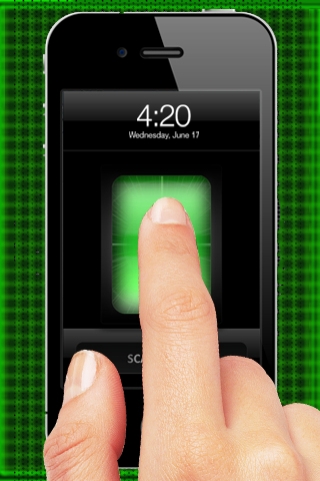iOS 7 May Bring Fingerprint Scanning to the Mainstream
Fingerprint scanning isn't new -- but Apple is known less for being the first
to introduce a technology than for figuring out how to make it appealing to
the masses. The introduction of fingerprint scanning as a security feature
for iPhones could be a master stroke, if it works. If it's less than slick,
though, there may be all sorts of "finger" puns in the headlines.
Remember Apple Maps?

The next iPhone will likely have a fingerprint scanning feature through iOS 7, iOS developer Hamza Sood has tweeted.
The thought that your iPhone may — and we should put an emphasis on that word, may — be able to read your thumbprint is an exciting one, but also a feature that should be used and implemented with care. Apple will have to make a pretty strong security case that the biometric data we may put into a device can not only protect data we put in the phone, but also be well-protected itself. The Federal Trade Commission has already taken steps to see what it can do to ensure the safety of fingerprint and facial recognition data — further adoption of this kind of technology will likely also merit close scrutiny from consumer protection agencies.

to introduce a technology than for figuring out how to make it appealing to
the masses. The introduction of fingerprint scanning as a security feature
for iPhones could be a master stroke, if it works. If it's less than slick,
though, there may be all sorts of "finger" puns in the headlines.
Remember Apple Maps?

The next iPhone will likely have a fingerprint scanning feature through iOS 7, iOS developer Hamza Sood has tweeted.
The thought that your iPhone may — and we should put an emphasis on that word, may — be able to read your thumbprint is an exciting one, but also a feature that should be used and implemented with care. Apple will have to make a pretty strong security case that the biometric data we may put into a device can not only protect data we put in the phone, but also be well-protected itself. The Federal Trade Commission has already taken steps to see what it can do to ensure the safety of fingerprint and facial recognition data — further adoption of this kind of technology will likely also merit close scrutiny from consumer protection agencies.
Let's Hear It for Scanning
Fingerprint scanning "adds another factor to the authentication process ... [which is] a net good thing" because this makes accounts more secure, Tom Kemp, CEO of Centrify, told MacNewsWorld. "This is, of course, assuming the scanning technology works."
Further, fingerprint scanning "combats a major source of security risk associated with passwords, namely password re-use," remarked Brendan Wilson, director of product management at Nok Nok Labs.
However, multiple levels of authentication are necessary, especially when payments or transactions are involved, said Jeff Orr, a senior practice director at ABI Research.
On the other hand, the technology has yet to be proven on a mass scale, and the fragmentation of mobile operating systems and mobile devices will make it hard to deliver a consistent experience for users of a given app, Kemp warned.
Other issues include determining how to fit the sensor into a smartphone's casing and figuring out where to position it for the best user experience, Nok Nok Labs' Wilson told MacNewsWorld.
Then there's the problem of false positives and negatives.
"Any implementation will always need to deal with issues such as cut or dirty fingers or oily or extra-dry skin," Greg Kazmierczak, vice president of technology strategy at Wave Systems, told MacNewsWorld.

.jpg)
